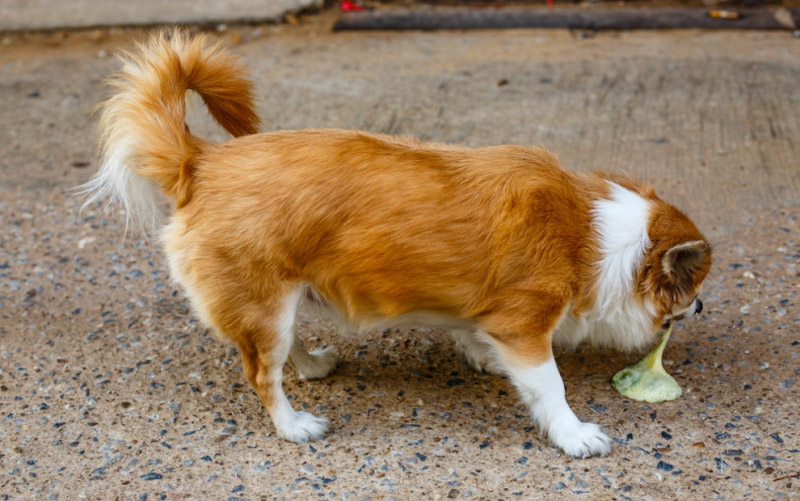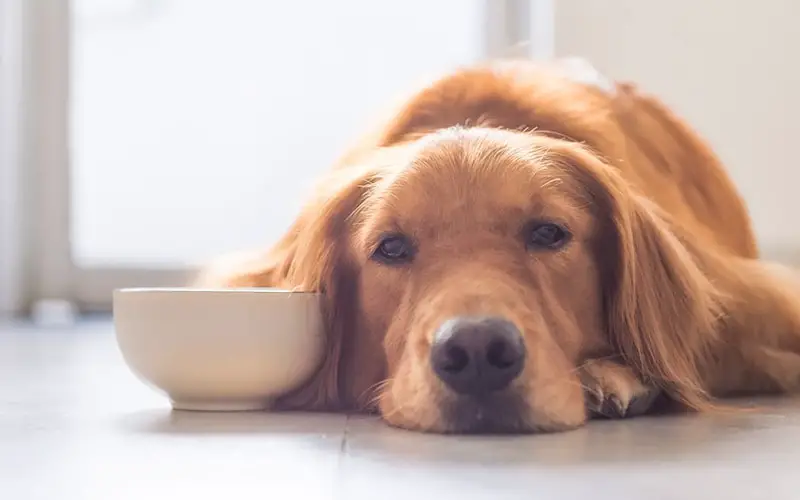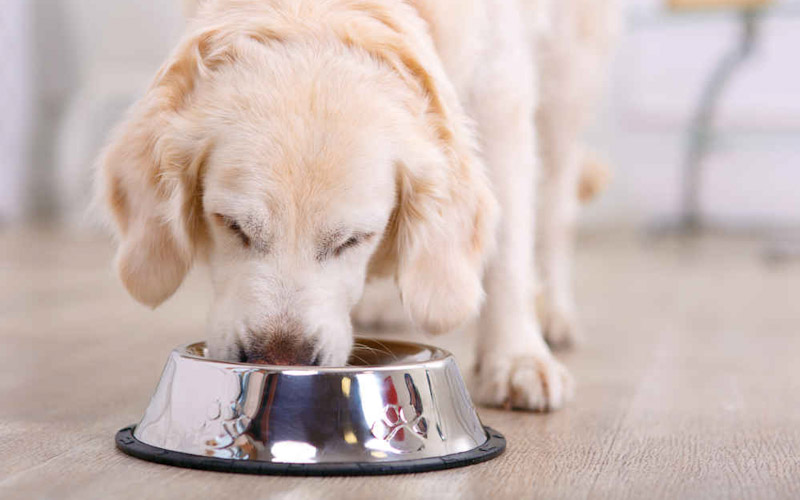If you have ever seen your dog throwing up undigested food, you may wonder what is causing this unpleasant symptom and how you can help your furry friend. In this article, we will explain the possible causes of undigested food in dog vomit, when you should see a veterinarian, and tips for preventing this issue in the future.

Possible Causes of Undigested Food in Dog Vomit
There are many reasons why your dog may vomit undigested food after eating, such as:
- Eating too fast: Some dogs tend to gulp down their food, which can cause them to swallow air and large chunks of food. This can irritate their stomach and make them regurgitate their food shortly after eating.
- Food intolerance or allergy: Some dogs may have a negative reaction to certain ingredients in their food, such as wheat, corn, soy, or dairy. This can cause inflammation and irritation in their digestive system, leading to vomiting, diarrhea, or skin problems.
- Gastric dilatation-volvulus (GDV): This is a life-threatening condition that occurs when the stomach twists and fills with gas, preventing blood flow to the vital organs. It is more common in large, deep-chested breeds, such as Great Danes, German Shepherds, and Saint Bernards. GDV can cause vomiting, bloating, abdominal pain, and difficulty breathing. It requires immediate veterinary attention.
- Pancreatitis: This is an inflammation of the pancreas, an organ that produces digestive enzymes and hormones. Pancreatitis can be triggered by high-fat foods, obesity, diabetes, or certain medications. It can cause vomiting, loss of appetite, abdominal pain, and fever.
- Inflammatory bowel disease (IBD): This is a chronic condition that causes inflammation and ulceration in the lining of the intestines. It can be caused by genetic factors, infections, parasites, or immune system disorders. It can cause vomiting, diarrhea, weight loss, and blood in the stool.
- Foreign body obstruction: This occurs when your dog ingests something that cannot be digested, such as a toy, a bone, a sock, or a string. This can block the passage of food and cause vomiting, abdominal pain, loss of appetite, and dehydration.
- Other medical conditions: There are other diseases or disorders that can affect your dog’s digestion and cause vomiting, such as kidney disease, liver disease, diabetes, cancer, or infections.

When to See a Veterinarian
If your dog vomits undigested food once or twice, it may not be a cause for concern, especially if they are otherwise acting normal. However, you should consult your veterinarian if your dog:
- Vomits frequently or repeatedly
- Vomits blood or bile
- Has signs of dehydration, such as dry mouth, sunken eyes, or skin tenting
- Has signs of pain, such as whining, panting, or restlessness
- Has signs of shock, such as pale gums, rapid heartbeat, or weak pulse
- Has a bloated or distended abdomen
- Has a fever or lethargy
- Has diarrhea or constipation
- Has weight loss or loss of appetite
- Has any other unusual or concerning symptoms
Your veterinarian will examine your dog and perform tests to determine the cause of the vomiting and provide appropriate treatment. Depending on the severity and the underlying condition, your dog may need medication, fluids, surgery, or dietary changes.

Tips for Preventing Undigested Food in Dog Vomit
There are some steps you can take to reduce the risk of your dog vomiting undigested food, such as:
- Feed your dog smaller, more frequent meals, rather than one large meal a day.
- Use a slow feeder bowl, a puzzle toy, or a muffin tin to make your dog eat more slowly and chew their food better.
- Avoid feeding your dog table scraps, human food, or high-fat treats, as they can upset their stomach or trigger pancreatitis.
- Choose a high-quality, balanced, and easily digestible dog food that suits your dog’s age, size, and health condition. Consult your veterinarian for recommendations.
- Avoid changing your dog’s food abruptly, as this can cause digestive upset. If you need to switch your dog’s food, do it gradually over a period of 7 to 10 days, mixing the old and new food in increasing proportions.
- Keep your dog away from garbage, plants, or other items that they may ingest and cause an obstruction or poisoning.
- Provide your dog with fresh, clean water at all times, and monitor their hydration level.
- Exercise your dog regularly, but avoid vigorous activity right after eating, as this can cause gastric torsion or bloat.
- Monitor your dog for any signs of illness or discomfort, and seek veterinary attention if needed.
